Prioritising trust, respect, and long-term safety of elephants and their mahouts.
%20(1).webp)
%20(1).webp)
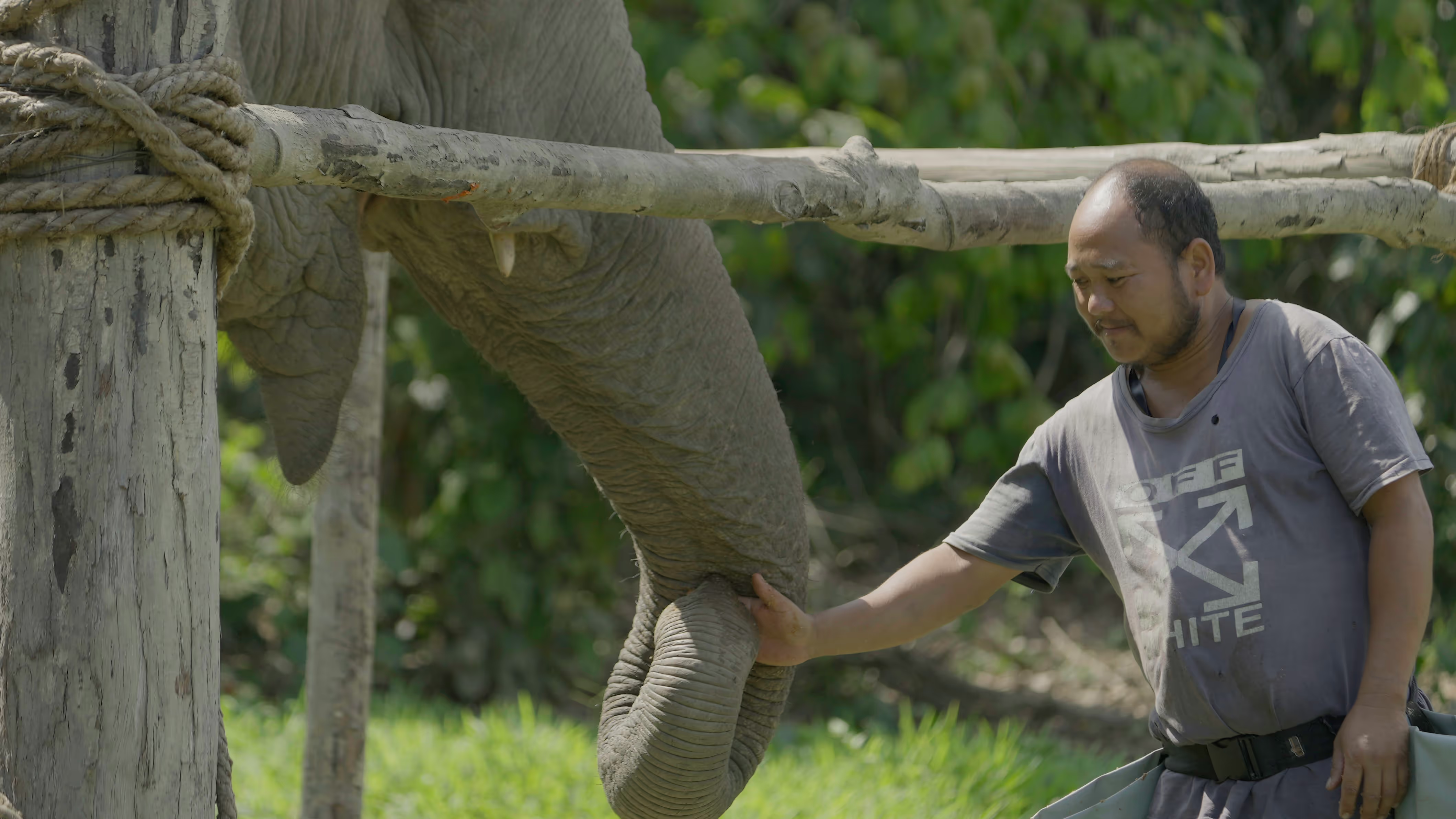
Through close collaboration with forest departments, psychologists, artists, mahouts, behaviourists, and veterinarians, our work spans across three interconnected areas:
We train elephants to participate willingly in their own healthcare—whether it involves offering their feet for inspection, accepting injections, or standing calmly during temperature checks and blood draws. This isn’t about tricks—it’s about dignity, consent, and long-term health.
We co-design mental health workshops, facilitate creative expression, and build spaces for reflection. We foster cross-site learning; for instance, mahouts from Kaziranga and Pakke have met to witness diverse elephant management practices and share insights.
From wound-healing plants to traditional diets, mahouts hold a deep, oral archive of ethnobotanical wisdom. We work together to help in written documentation of these multiple knowledges.
What does the life of this work look like?
Sometimes, it’s a mahout singing again after years of silence.
Listen to “Haathi Bondhu” — a song born in the forest, sung by mahouts and musicians alike.
Or an elephant offering behaviours, not from fear, but trust.
Learning, Sharing and Growing with Fellow Mahouts
It’s in quiet mornings spent painting dreams, sharing memories, or simply listening.Below are snapshots from “Thinking and Working with Elephants”—our One Health dialogue.
Snapshots from the sound, movement, and reflection in the forest during our “Safar” workshop.
Training Journals & Field Notes
Sketches, photos, and notes from our daily training sessions.
We hope this is just the beginning. As we refine and translate our training manuals for mahouts, we also aim to deepen our understanding of cultural knowledge systems, traditional healing practices, and the lived experiences of elephant caregivers and see if it's possible to build long-term collaborations in other areas. Our goal is to achieve safer and more compassionate elephant management, where trust, care, and respect guide the future of human-elephant relationships. We hope to raise further support to reimagine how humans and elephants can live, work, and care for each other when protecting forests.

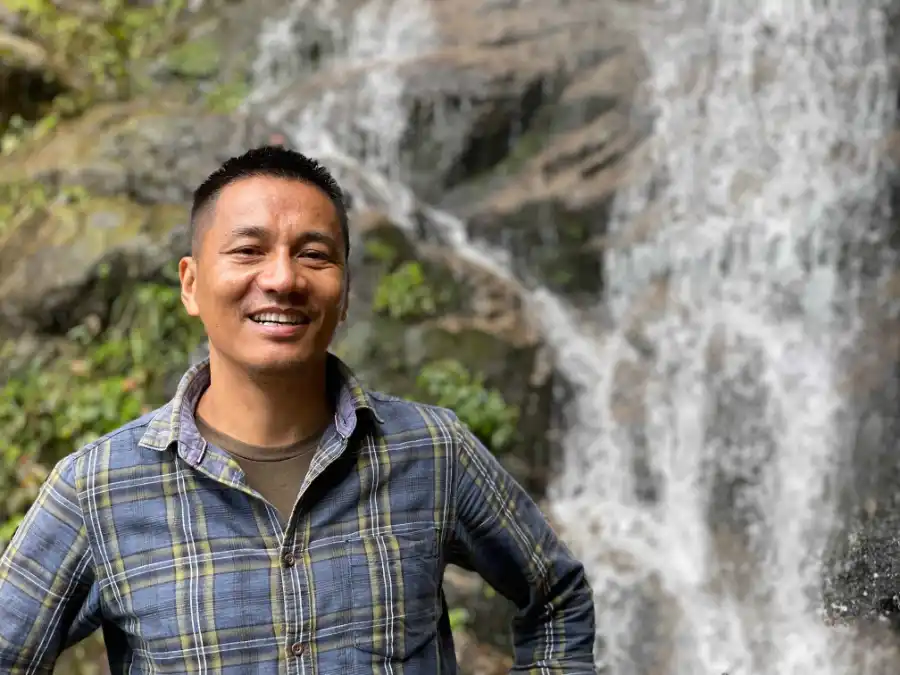

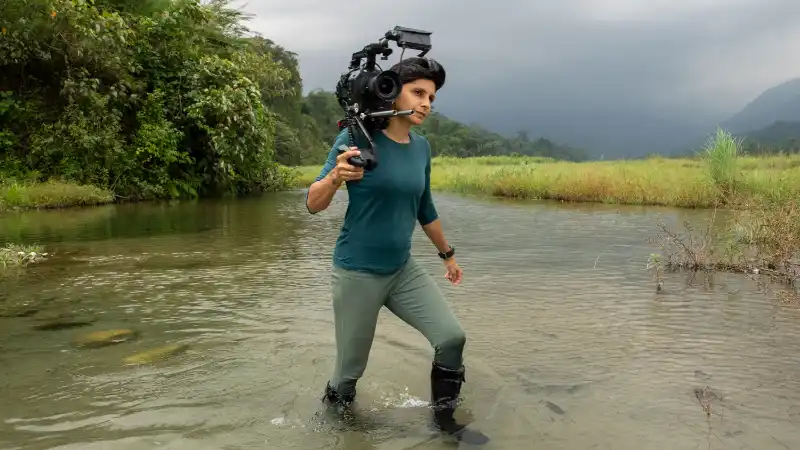

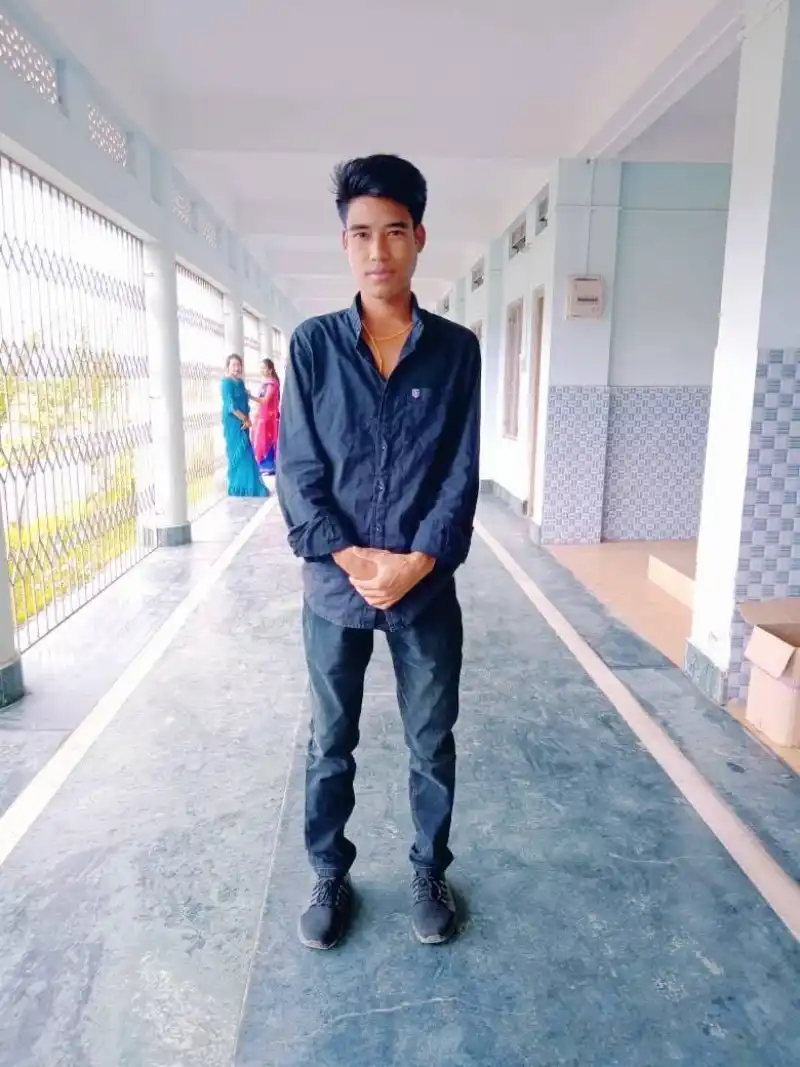
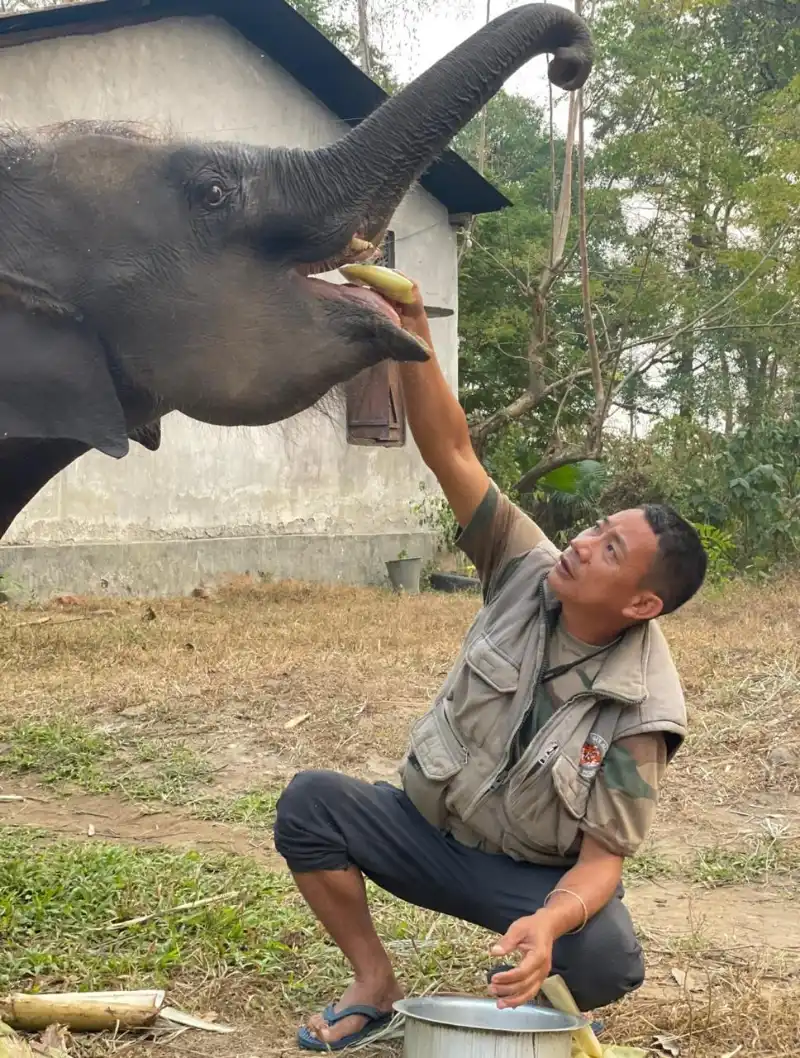
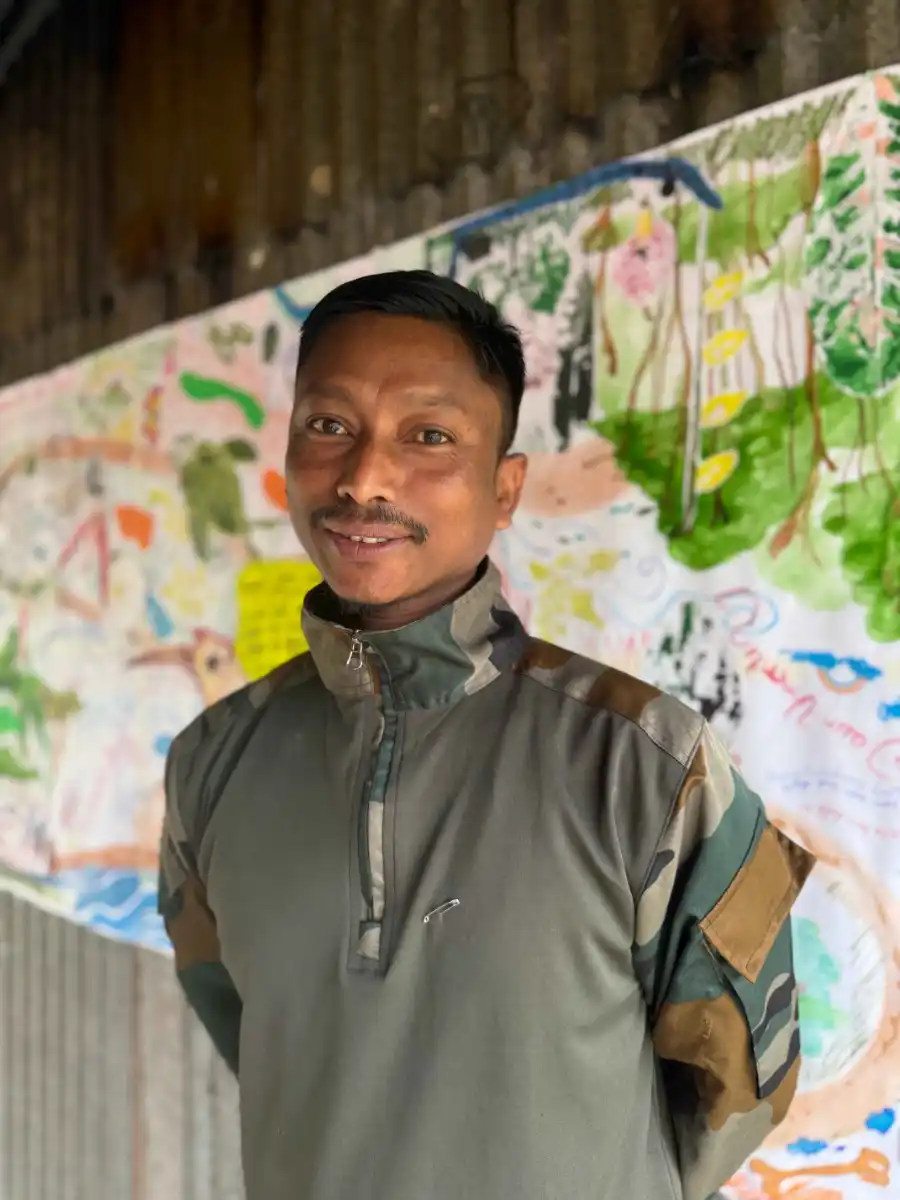
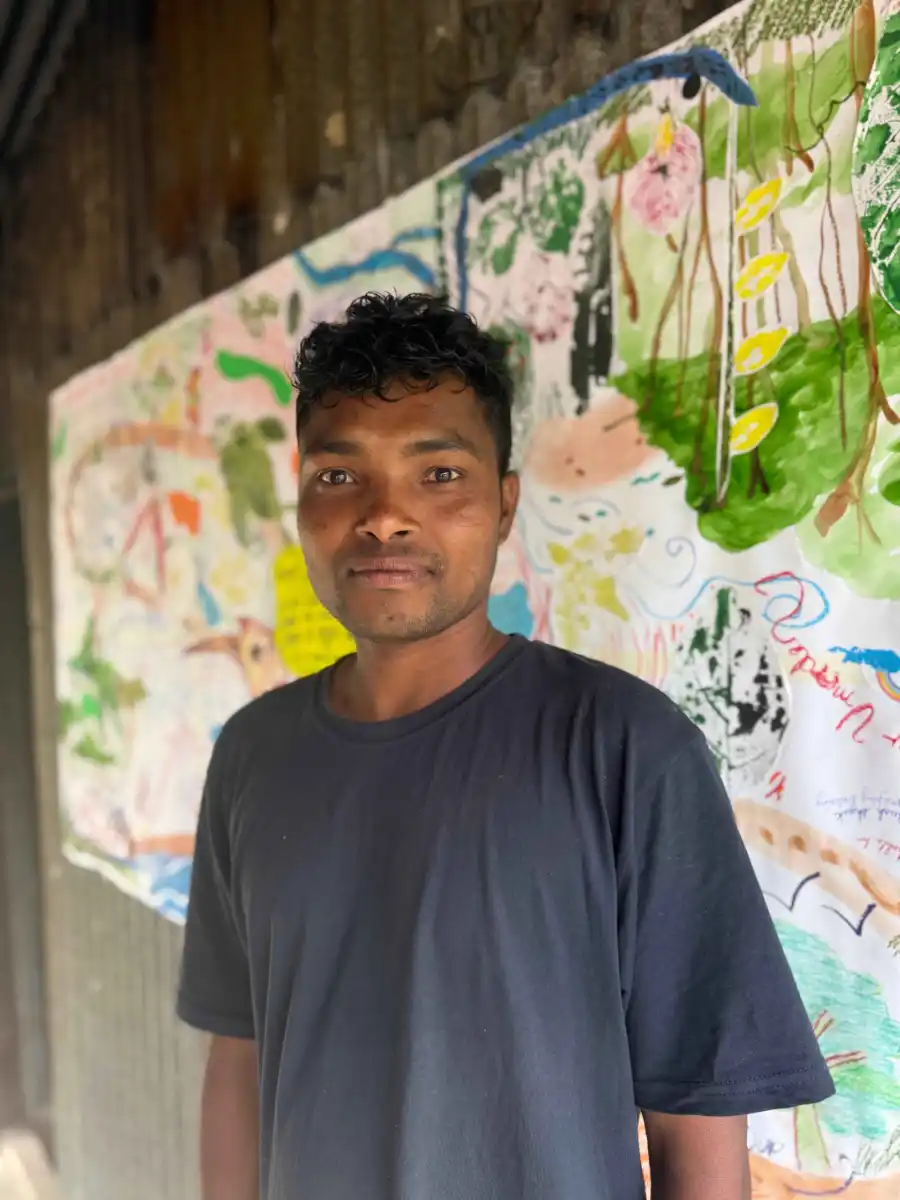
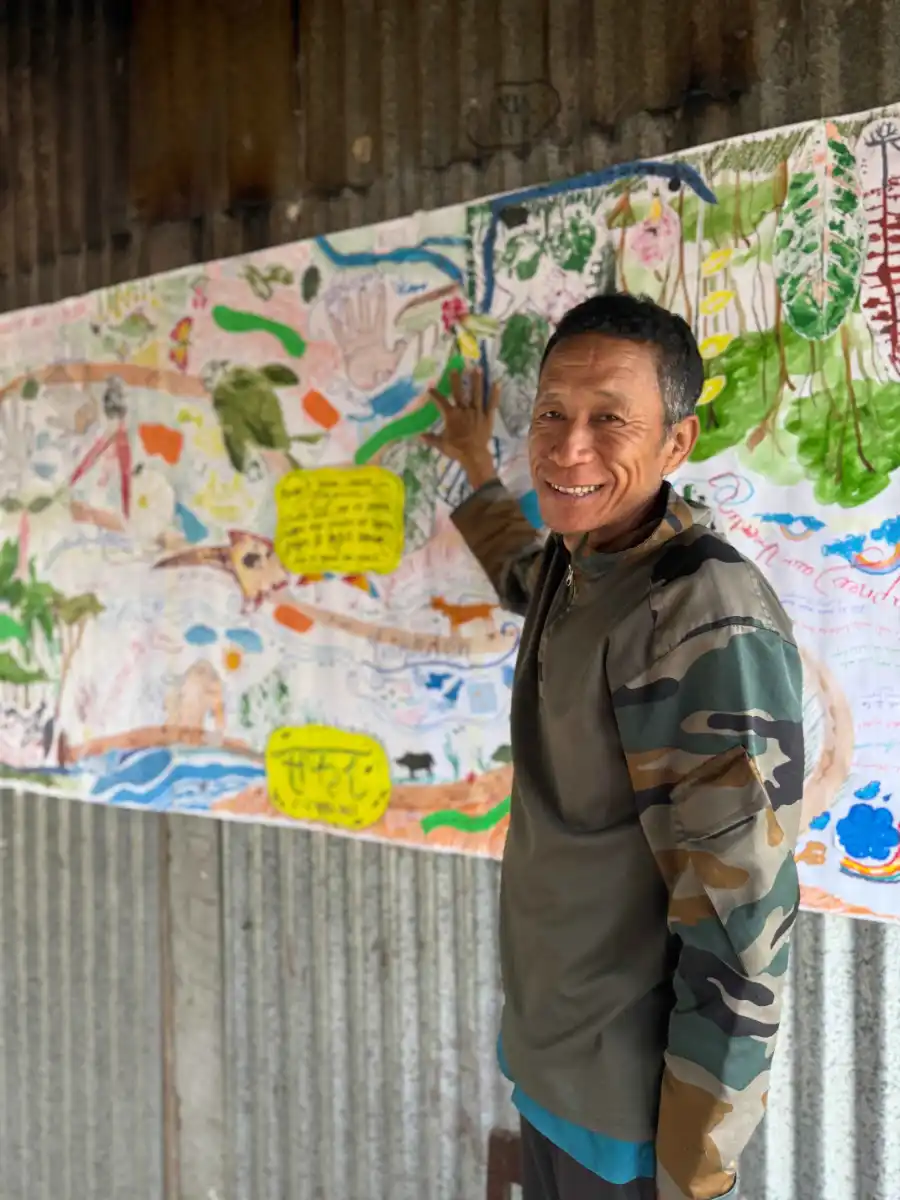

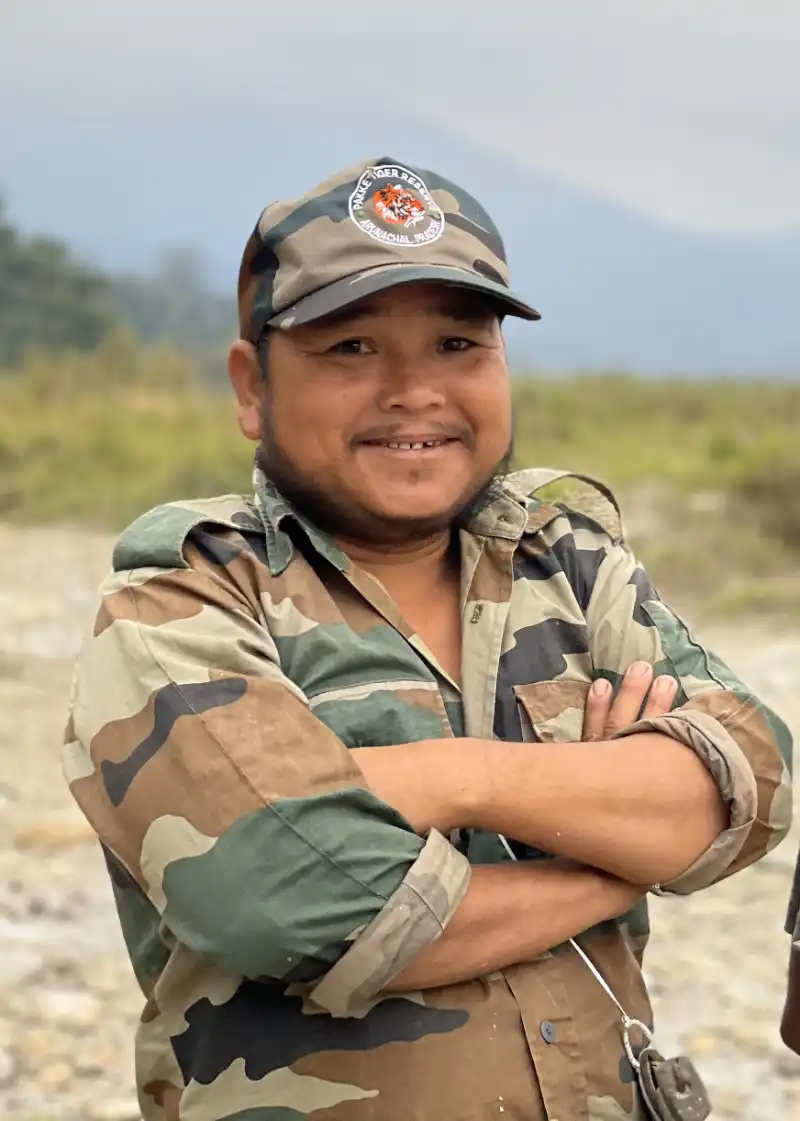
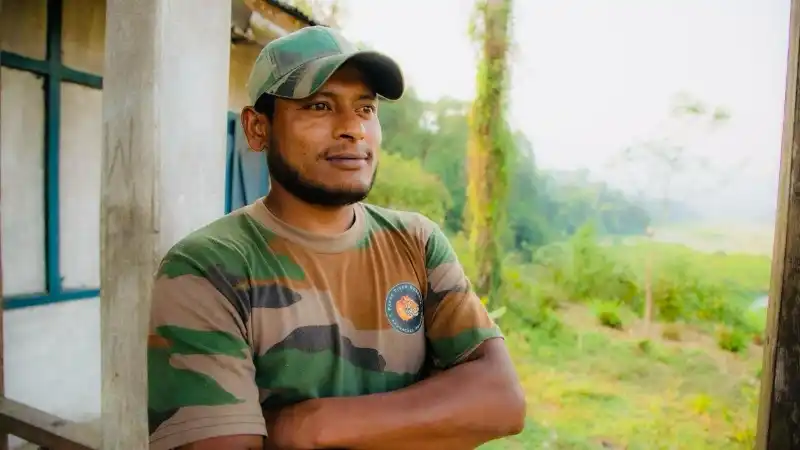
.webp)

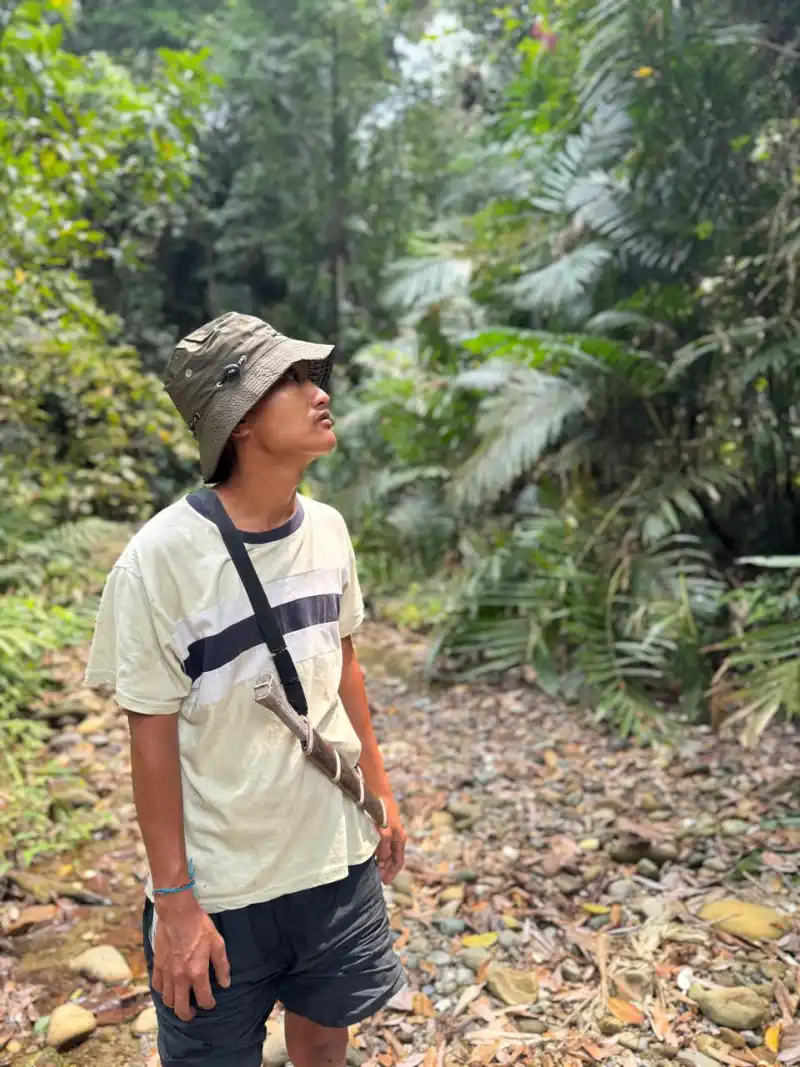
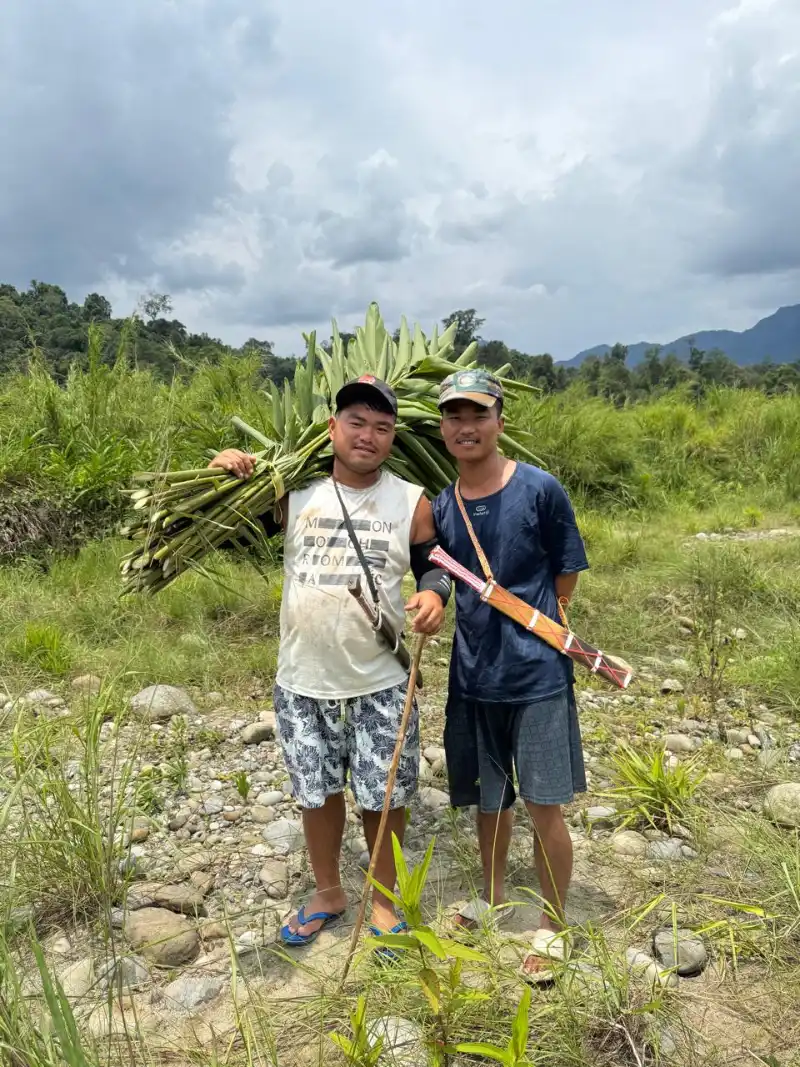
Khaisingh,
Khari Anti-Poaching Camp, Seijosa RangeBorn in 1994 and brought to Pakke in 2007, Khaisingh is the most eager and even-tempered of Pakke’s elephants, known for his strong motivation and gentle nature. Calm and trusting, he shares a deep bond with his mahouts and exhibits remarkable patience and tolerance, even with unfamiliar people and surroundings.
Bahadur,
Khari Anti-Poaching Camp, Seijosa Range
Bahadur arrived in Pakke alongside Joimala and is around the same age, having served the reserve for over four decades. He is known for his intelligence, calm presence, and perceptive nature. Though once hesitant and guarded, he has grown into a confident and cooperative elephant, forming a strong bond with his mahouts.
Vijaya,
Khari Anti-Poaching Camp, Seijosa Range
Vijaya is the only elephant born in Pakke and the oldest in the reserve, having served for nearly five decades. Calm, steady, and deeply bonded with her mahouts, she carries herself with quiet dignity. Though slow to warm up to new people and known as one of the most feared elephants in Pakke, she is also among the hardworking, reliable, resilient, and unwavering in her duties.
Joimala,
Diji Anti-Poaching Camp, Tippi Range
Joimala is only a little younger than Vijaya and has spent over four decades serving in Pakke. One of the oldest elephants at the reserve, she carries herself with a calm, nurturing presence that makes her a mother figure to the other younger elephants in her camp. She is known to be gentle and composed and shares a deep, trusting bond with her mahouts.
Tamuk,
Diji Anti-Poaching Camp, Tippi Range
Tamuk arrived in Pakke in 2014 and is the youngest- and most mischievous - of all the elephants at the reserve. Exceptionally smart and curious, he often utilises his cleverness to accomplish his goals his way. Despite his naughtiness, Tamuk’s energy and quick thinking make him a lively and engaging presence in Pakke.
Arghadeep Barua, Dr. Abhilasha Sharma, Dr. Diptarup Chowdhury, Gangamuni Guawala, Geto Marde (Forester, Seijosa Range, Pakke Tiger Reserve), Kanishk Kala, Limar Loyi, Montu Basumatari, Nandini Velho, Rajo Tayem, Riaz Ahmed, Dr. Rinku Gohain, Salil Subedi, Satyaprakash Singh, IFS (Divisional Forest Officer, Pakke Tiger Reserve), Singku Maga (Range Forest Officer, Seijosa Range, Pakke Tiger Reserve), Sucheta Roy, Sreeja Basu and Svabhu Kohli.
Pakke Tiger Reserve Forest Department
Institute of Public Health, Bengaluru
Dusty Foot Foundation
Rohini Nilekani Philanthropies
The Habitats Trust
Pakke Tiger Reserve Forest Department
DBT/Wellcome Trust India Alliance (Nandini Velho & Prashanth NS)
Royal Enfield Social Mission (Green Story Film to Pooja Rathod)
Credible Engineering Construction Projects Ltd.
Duleep Matthai Nature Conservation Trust (Design and Creation of Lesson Plans for Positive Reinforcement Training Manual)